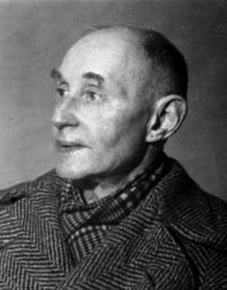Search for Names, Places and Biographies
Already layed Stumbling Stones
Suche
Fritz Simon Reich * 1868
Rathausmarkt 1 (links vor dem Rathaus) (Hamburg-Mitte, Hamburg-Altstadt)
FRITZ SIMON REICH
MDHB 1927 – 1928
REICHSPARTEI DES
DEUTSCHEN MITTELSTANDES
JG. 1868
DEPORTIERT 1944
THERESIENSTADT
ERMORDET 31.5.1944
further stumbling stones in Rathausmarkt 1 (links vor dem Rathaus):
Kurt Adams, Etkar Josef André, Bernhard Bästlein, Adolf Biedermann, Gustav Brandt, Valentin Ernst Burchard, Max Eichholz, Hugo Eickhoff, Theodor Haubach, Wilhelm Heidsiek, Ernst Henning, Hermann Hoefer, Franz Jacob, Friedrich Lux, August Schmidt, Otto Schumann, Theodor Skorzisko, Ernst Thälmann, Hans Westermann
Fritz Simon Reich, Member of the Hamburg State Parliament
Fritz Simon Reich, the son of Jewish parents, was born in Königsberg, East Prussia on 31 August 1868. He attended preparatory school there up to the fifth form, then completed a business apprenticeship with a Königsberg "Wholesale Colonial Wares” company.
From April 1890 to March 1891, he did his military service in the Grenadier Regiment "King Friedrich Wilhelm I," discharged with the rank of non-commissioned officer.
In the following years Fritz Reich gained business experience abroad in London. There he worked as a manager at, among other places, the Commodities and Trade Exchange Market. Reich settled in Hamburg in 1896, where in the following year he set up as an independent broker and representative. In February 1902, he was admitted to the Hamburg State Union.
The businessman Fritz Simon Reich was a member of the Hamburg State Parliament for only a few months. In the elections of late 1927, he was elected to the Parliament for the "Economic Party," an offshoot of the "Reich Party of the German Middle Class,” which contested elections in Hamburg for the first time. Admittedly, the 1927 parliamentary elections in Hamburg were declared invalid by the Leipzig Supreme Court, because the Senat, in the interest of governmental stability, discriminated against the smallest splinter group parties. Thus, new elections had to be held in February 1928. In the new elections, Reich could not hold onto his seat because of the steep decline in the vote for his party which fell from 4.2% to 2.9%. In the following year also, the Economic Party was not able to recover. In 1931, it got only 1.5% of the vote and in 1932, with .5% finally vanished into insignificance.
His only parliamentary speech, in December 1927, called for reform of Hamburg’s fee and tariff schedule with the goal of lightening their burden on small and middle-sized businesses. His motion for an immediate reform of Hamburg’s administrative regulations, which he criticized, won majority backing in the Parliament.
In the mid-1930s, Fritz Reich lived with his family on Schötteringksweg in the Uhlenhorst district, where he ran a business dealing in oils. After the Night of Broken Glass pogrom on 9 November 1938, he and his family were resettled in the Grindel Jewish neighborhood at Grindelallee 79. Following the forced move, Reich lost his firm to "Aryanization.”
On 19 January 1944, he was deported to the Theresienstadt concentration camp. From this point on he leaves no trace. At the request of his surviving son, Fritz Simon Reich was declared dead by the District Court of Hamburg. His date of death was fixed as 31 May 1944.
© * With the kind permission of the publisher, the State Parliament of the Free and Hanseatic City of Hamburg, the text is excerpted from: Jörn Lindner/Frank Müller: "Mitglieder der Bürgerschaft – Opfer totalitärer Verfolgung," [Members of the State Parliament – Victims of Totalitarian Persecution], 3rd revised and enlarged ed. Hamburg 2012
Translator: Richard Levy
Kindly supported by the Hermann Reemtsma Stiftung, Hamburg.
Stand: October 2018
© Text mit freundlicher Genehmigung der Bürgerschaft der Freien und Hansestadt Hamburg (Hrsg.) entnommen aus: Jörn Lindner/Frank Müller: "Mitglieder der Bürgerschaft – Opfer totalitärer Verfolgung", 3., überarbeitete und ergänzte Auflage, Hamburg 2012


